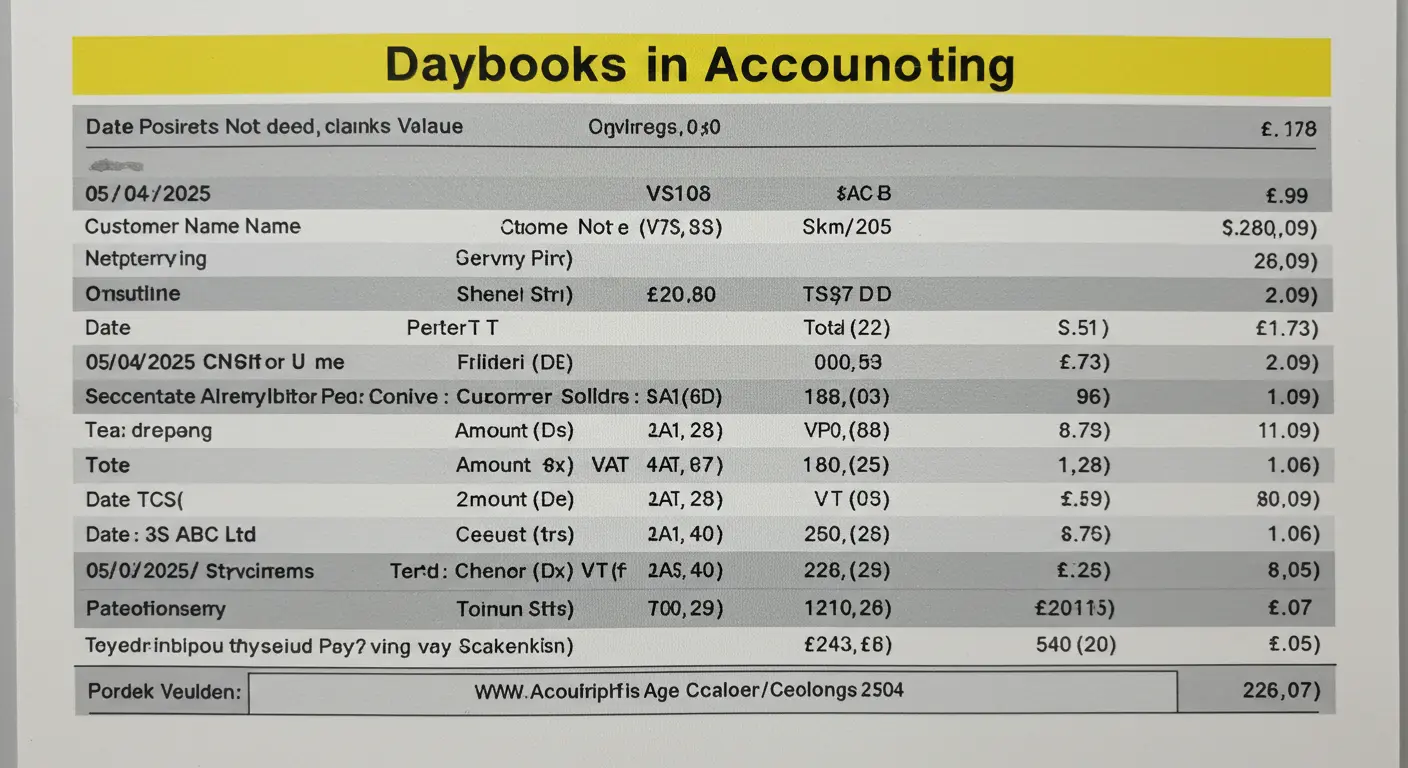What are bookkeeping tools and software?
Bookkeeping tools are software applications made to make it easier for businesses to record, monitor, and handle financial transactions. By automating processes like financial reporting, payroll, cost monitoring, and invoicing, they save time and minimize human error.Modern bookkeeping equipment also offers cloud-based access, making it easier for business owners to check financial records anywhere and basically cooperate with accountants or team members.This article digs into the evolution of bookkeeping tools and software, exploring traditional methods, modern software solutions, and the role of automation in bookkeeping.
Why Do You Need Them?
You need bookkeeping tools because accurate financial records are important for informed business decision-making and maintaining compliance with tax authorities. These devices provide a clear insight into your company’s financial health, allowing you to identify profitable areas or highlight potential issues. By automating bookkeeping functions, you also free more time to focus on increasing your business rather than exploding from paperwork or complex calculations.
What Are the Traditional Methods of Bookkeeping?
The traditional bookkeeping method focuses on systematically recording financial transactions to maintain accurate commercial records. The most common here are:
- Manual Ledger Entries: All financial transactions were recorded by hand in physical ledgers, typically divided into sections like sales, purchases, expenses, and cash flow.
- Paper-Based Records: Businesses store paper copies of all receipts, invoices, and financial documents. Filing and organizing these documents was a critical part of traditional bookkeeping, and they served as backup proof for transactions.
- Spreadsheet-Based Bookkeeping: using the help of digital accounting software, numerous companies were able to switch from employing physical LEDs to spreadsheets, or manually tracking revenue and expenses using comparable equipment.
What Difficulties Do They Present?
Traditional bookkeeping methods, while foundational, come with several challenges that can make financial record-keeping cumbersome. Here are the key difficulties:
- Human Error: Manual entry increases the risk of mistakes, such as incorrect calculations or missing transactions.
- Time-Consuming: Recording transactions by hand or in spreadsheets demands significant time and effort.
- Lack of Automation: No built-in error checking, reporting, or integration with banking systems like modern accounting software.
- Work Intensive: Bookkeepers invested a lot of energy in routine errands like information passage, accommodating records, and producing reports
- Restricted Accessibility: Admittance to monetary records was limited to those who had actual admittance to the reports, making joint effort troublesome.
- Inclined to Errors: Manual cycles expanded the gamble of mistakes, like inaccurate sections, duplications, and errors.
Regardless of these difficulties, customary accounting techniques gave the fundamental preparation for improving additional modern frameworks.
How do modern software solutions improve bookkeeping and financial management?
Modern bookkeeping software solutions have transformed how businesses manage their financial records, offering increased efficiency, accuracy, and ease of use. These tools automate many of the manual tasks associated with traditional bookkeeping, freeing time for business owners to focus on growth.
- Automated Data Entry: Modern software can automatically import and classify transactions from bank accounts, credit cards, and other financial foundations, decreasing the need for physical entry. This automation minimizes human error and allows businesses to operate more efficiently.
- Cloud-Based Access: Cloud accounting software like QuickBooks Online and FreshBooks permits users to access financial data from anywhere with an internet connection, facilitating remote work and alliance.
- Real-Time Reporting: One of the greatest advantages of bookkeeping software is real-time data access. Business owners can track cash flow, expenses, and profits in real-time, helping them make informed decisions quickly.
- Integration with Other Tools: Many bookkeeping software solutions incorporate other business tools, such as CRM systems, payroll services, and e-commerce platforms, creating a continuous workflow.
- Enhanced Security: Modern software employs advanced security measures such as encryption, two-factor authentication, and systematic backups to protect sensitive financial data.
What are some popular modern bookkeeping software options?
Modern bookkeeping software comes in a variety of alternatives to help firms handle their finances more efficiently. Among the most well-liked ones are:
- QuickBooks: A widespread tool offering a range of features for small to medium-sized businesses, including invoicing, expense tracking, and financial reporting.
- FreshBooks: This software is popular among freelancers and small service-based businesses thanks to its spontaneous design and invoicing capabilities.
- Zoho Books: Part of the Zoho suite of business tools, Zoho Books offers strong accounting features and a smooth combination with other Zoho applications.
These modern tools have made bookkeeping more effective, allowing businesses to focus more on progress and less on managerial tasks.
What are some free software options available for small businesses?
Small businesses can benefit from different bookkeeping free software options that streamlink financial management and increase efficiency. Tools such as wave accounting offer essential features such as invoiceing, expansion tracking and bank cohesion, making them ideal for small business accounting. Similarly, Zoho Books provides a free plan to suit small businesses, which enables automated workflows and simplified tax calculations. These solutions help entrepreneurs to manage finance effectively without the burden of expensive membership.
Beyond the basic accounting, free bookkeeping software like Manager.io supports offline use, ensuring access without internet dependence. Cloud-based platforms such as GNUCASH allow small businesses to be easily tracked transactions, balance sheets and financial reports. These devices not only reduce manual bookkeeping efforts, but also increase accuracy, helping businesses to remain in line with tax rules. Taking advantage of the right bookkeeping free software gives small businesses the right to focus on development by maintaining financial stability.
What Is Automation in Bookkeeping?
Automation is the next edge in bookkeeping, promising to further rationalize procedures and decrease the potential for human error. By leveraging artificial intelligence (AI) and machine learning, bookkeeping automation can switch many of the repetitive and time-consuming tasks usually performed by humans.
- Automated Transaction Cataloging: AI-powered software can mechanically classify transactions based on past behavior and predefined rules, improving accuracy and saving time.
- Reconciliation: Automated reconciliation tools match transactions from bank statements with those in the record, identifying differences and dropping the risk of errors.
- Invoice Processing: Automation can switch the perfect invoicing process from creating and sending invoices to tracking payments and sending notices for overdue accounts.
- Expense Management: Tools like Expensify and Concur can automatically scan and sort receipts, streamlining expense reporting and reimbursement processes.
- Tax Compliance: Automation helps ensure submission with tax regulations by precisely calculating taxes owed, filling out forms, and even filing returns automatically.
How manifold are the benefits of automation in bookkeeping?
The benefits of automation in bookkeeping method are widespread, which provide increased efficiency and accuracy. Automatic systems reduce manual errors, ensure accurate calculation and timely financial reporting. Business transactions save valuable time by streamlining recording and cohesion processes. Additionally, real -time data access allows for better financial decision making and cooperation.
Automation also increases safety and compliance, which protects sensitive financial information from violations. This helps in compliance by monitoring expenses and generating accurate reports. Cost savings are another advantage, as businesses reduce labor expenditure and paper-based record-keeping. Eventually, the automation transforms the bookkeeping into a spontaneous and highly reliable process.
How does modern software contribute to automation?
Because it increases efficiency and reduces repetitive activities, modern software is essential to automation. With AI-driven algorithms that process data fast and accurately, it minimizes the need for human interaction. Automation tools are used by businesses to increase production and reduce operational faults. Cloud-based solutions facilitate smooth cooperation by offering real-time access to information.
Additionally, by protecting data and guaranteeing regulatory compliance, automation software improves security and compliance. Because of its many system integrations, companies may streamline processes and cut expenses. Analytics and reporting that are automated provide insightful information for well-informed decision-making. In the end, contemporary software revolutionizes industries by improving the speed, intelligence, and dependability of operations.
Conclusion
In conclusion, the evolution of bookkeeping tools and software has renovated the way businesses achieve their financial records. Traditional methods laid the foundation, while up-to-date software introduced efficiency and availability. Automation has taken it a step further, reducing the need for manual interference in routine tasks. By integrating these elements, businesses can create a robust bookkeeping system that ensures accuracy, efficiency, and strategic financial management. Acceptance of these advancements allows businesses to concentrate on growth and modernism, secure in the knowledge that their financial records are in good hands.
FAQ’s
What is the best software tool for bookkeeping?
- FreshBooks: Most convenient for use.
- AccountEdge: Used for advanced data management.
- NetSuite: Best for automation & workflows
- Neat: Best for document management.
Is QuickBooks used in the UK?
Now is the time to get started with QuickBooks if you are a sole proprietor or self-employed. Our HMRC-perceived bookkeeping programming can assist with keeping your records exact and coordinated, saving you around 8 hours a month dealing with your records. It can also provide insights into your cash flow, letting you know where your company stands.
Which one is better, Zoho or QuickBooks?
Zoho Books offers an instinctive UI and consistent incorporation with other Zoho applications. QuickBooks, on the other hand, offers a contemporary UI, high-level detailing capacities, and high-level client care.
















